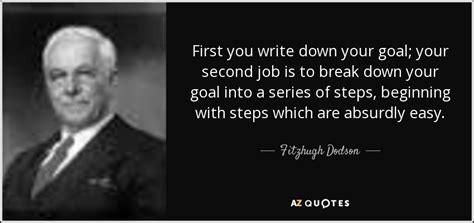A Quote by Twyla Tharp
When creativity has become your habit; when you've learned to manage time, resources, expectations, and the demands of others; when you understand the value and place of validation, continuity, and purity of purpose, then you're on the way to an artist's ultimate goal; the achievement of mastery.
Related Quotes
Mastery requires endurance. Mastery, a word we don’t use often, is not the equivalent of what we might consider its cognate—perfectionism—an inhuman aim motivated by a concern with how others view us. Mastery is also not the same as success—an event-based victory based on a peak point, a punctuated moment in time. Mastery is not merely a commitment to a goal, but to a curved-line, constant pursuit.
Do you think that we're products of our environments? I think so, or maybe products of our expectations. Others' expectations of us or our expectations. I mean others' expectations that you take on as your own. I realize how difficult it is to seperate the two. The expectations that others place on us help us form our expectations of ourselves.
If you go to a master to study and learn the techniques, you diligently follow all the instructions the master puts upon you. But then comes the time for using the rules in your own way and not being bound by them....You can actually forget the rules because they have been assimilated. You are an artist. Your own innocence now is of one who has become an artist, who has been, as it were, transmuted.... You can't have creativity unless you leave behind the bounded, the fixed, all the rules.
If you give orders and explain nothing, you might get obedience, but you'll get no creativity. If you tell them your purpose, then when your original plan is shown to be faulty, they'll find another way to achieve your goal. Explaining to your men doesn't weaken their respect for you, it proves your respect for them.
Miro, I'm so sorry. I always felt such pity for you humans because you could only think of one thing at a time and your memories were so imperfect and . . . now I realize that just getting through the day without killing somebody can be an achievement." It gets to be a habit. Most of us manage to keep our body count quite low. It's the neighborly way to live.
Nothing has a more sinister effect on art than the artist's desire to prove that he's good. The terrible temptation of idealism! You must achieve mastery over your idealism, over your virtue as well as over your vice, aesthetic mastery over everything that drives you to write in the first place - your outrage, your politics, your grief, your love!
Some people, in working towards a goal, find themselves seized by inertia when it comes time for action. If this should happen to you, despite the small graduated steps, then it is time to re-examine your goal. Consider how important it actually is and then either discard the goal and replace it with more suitable one or continue the steps with a renewed sense of the value of achieving it.
It is time for you to make a commitment to create joy, creativity and love for yourself, only then will you benefit others, for if you do not evolve yourself, you do not serve others. By becoming a living example, by following what is in your heart, you show the way for others to follow with courage, what is in their hearts.
If you want to change an external part of your life, then you are first required to change the internal beliefs that hold these patterns in place. If you want others to respond to you or your work in different ways and with more appreciation, then examine your expectations for your work and your efforts. When you believe in yourself, chances are others will find your worth also.
You can't always do that which you can do in your sleep. That doesn't fulfill an artist. You're looking for places where you can grow, in some way, whether it's a large way or a small way. I want to grow as an artist, as a person and as a woman. I want to enjoy myself and my life and the company that I'm keeping. I want to bring something to the table that's different than anything else would bring, but that has its place and value, and then keep moving.
Since the real purpose of meditation is to increase our capacity to help others, taking time each day to meditate is not selfish. We have to manage our time and energy in such a way that we can be of maximum benefit to others, and to do this we need time alone to recover our strength, collect our thoughts, and see things in perspective




































